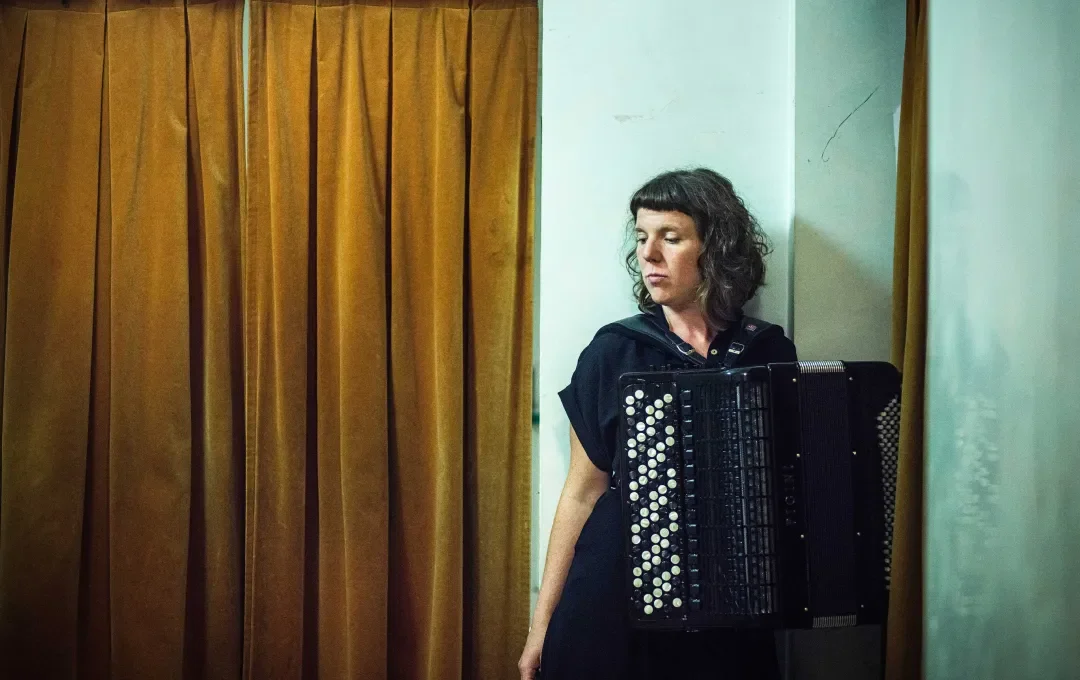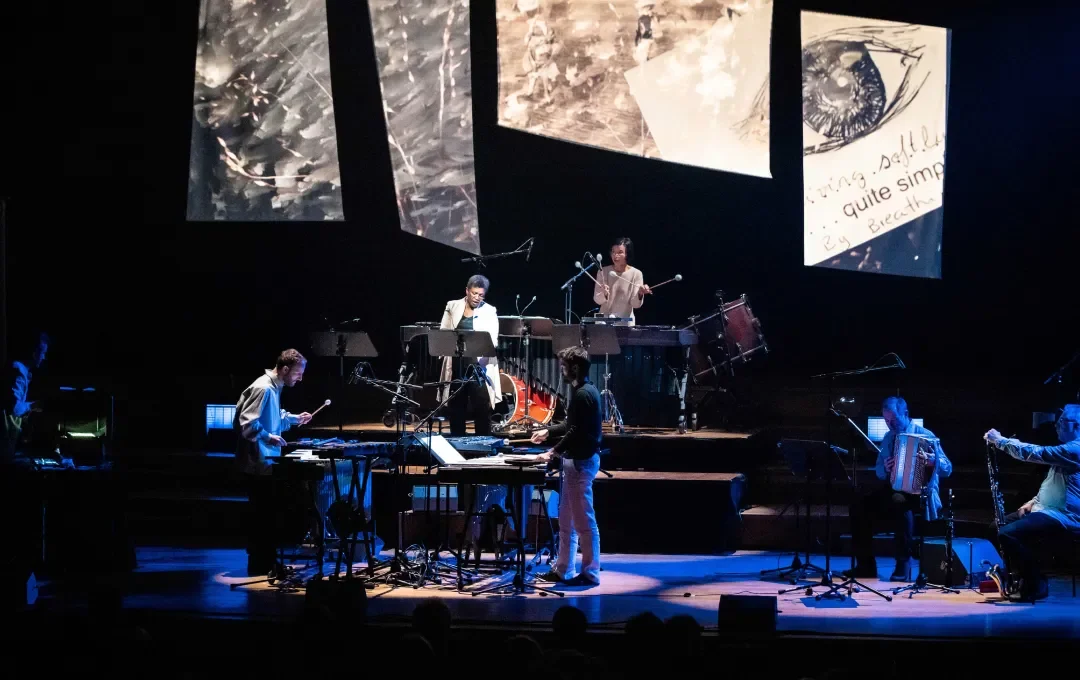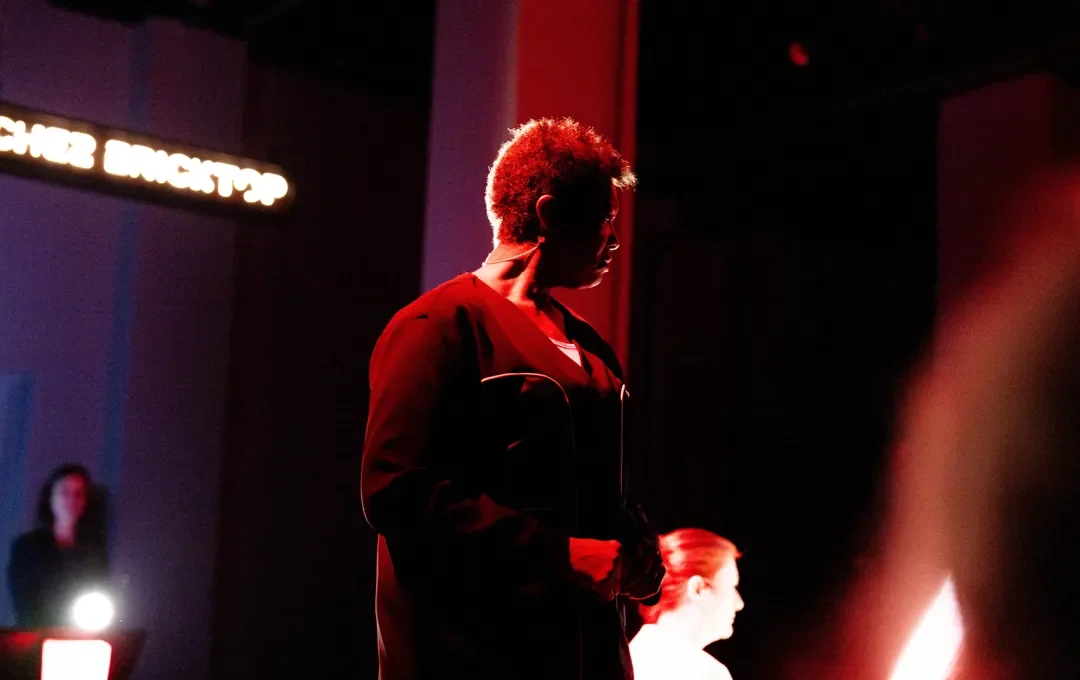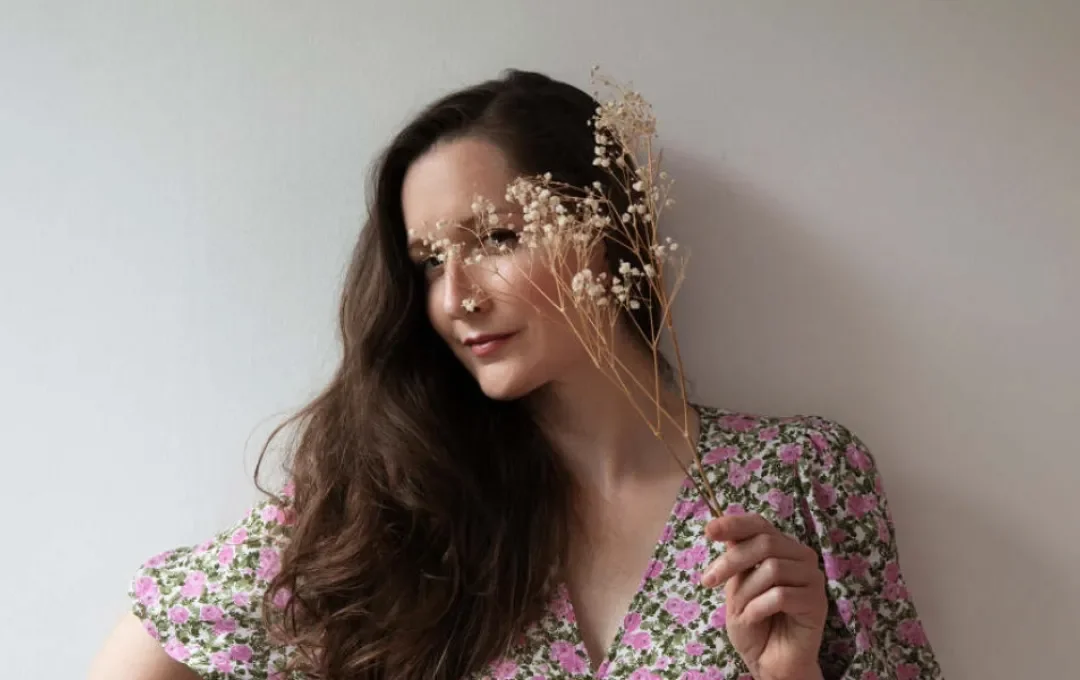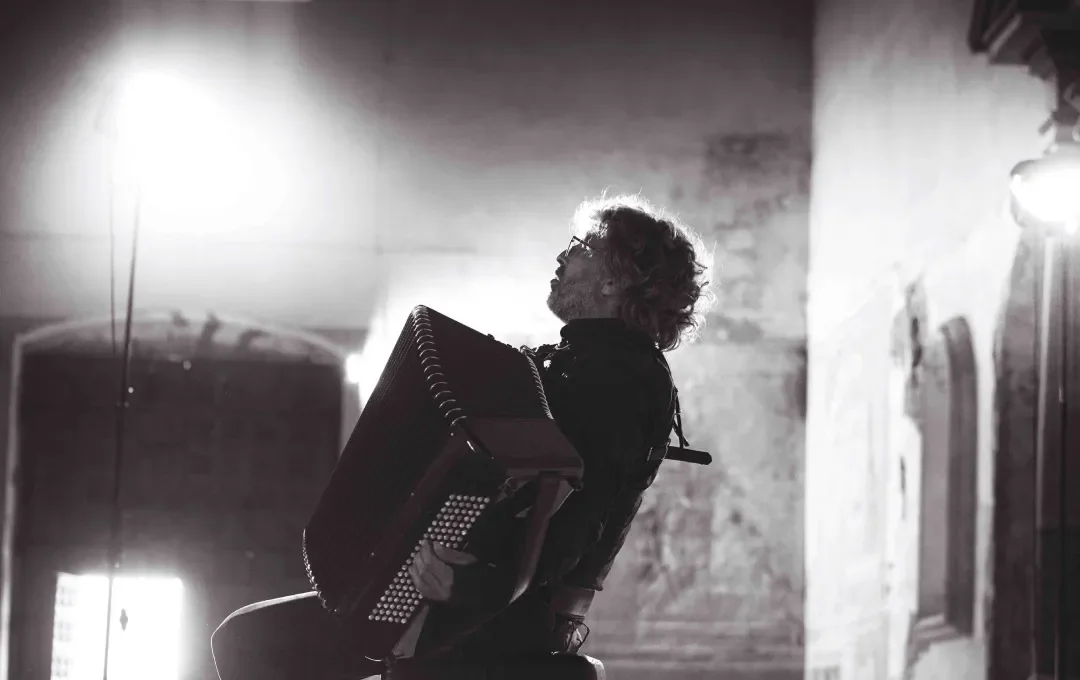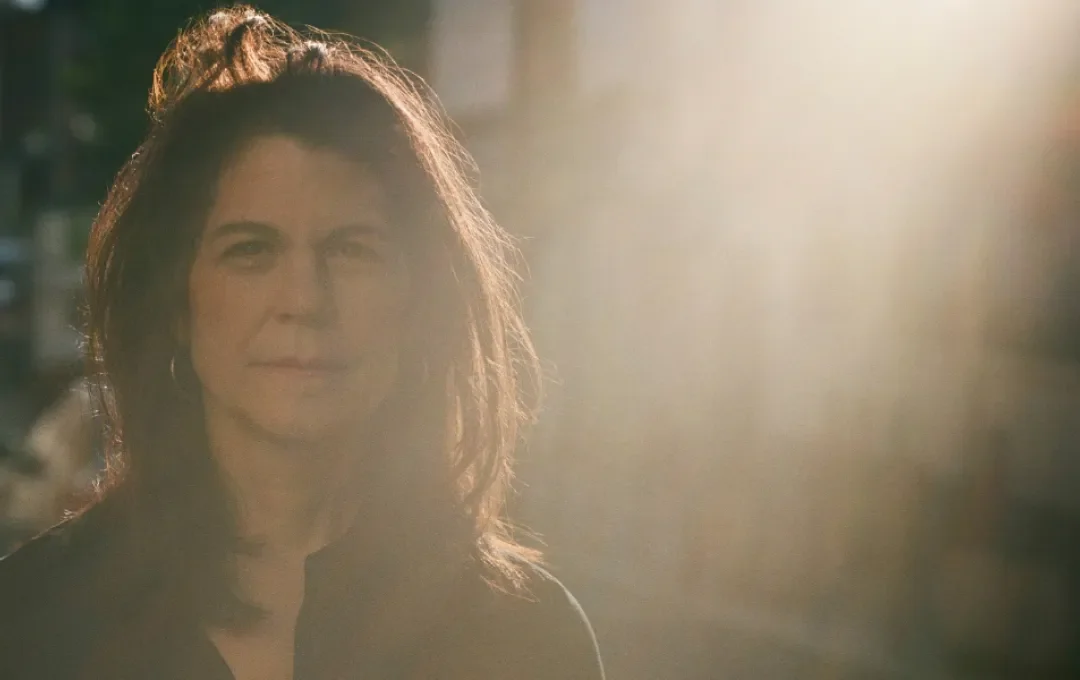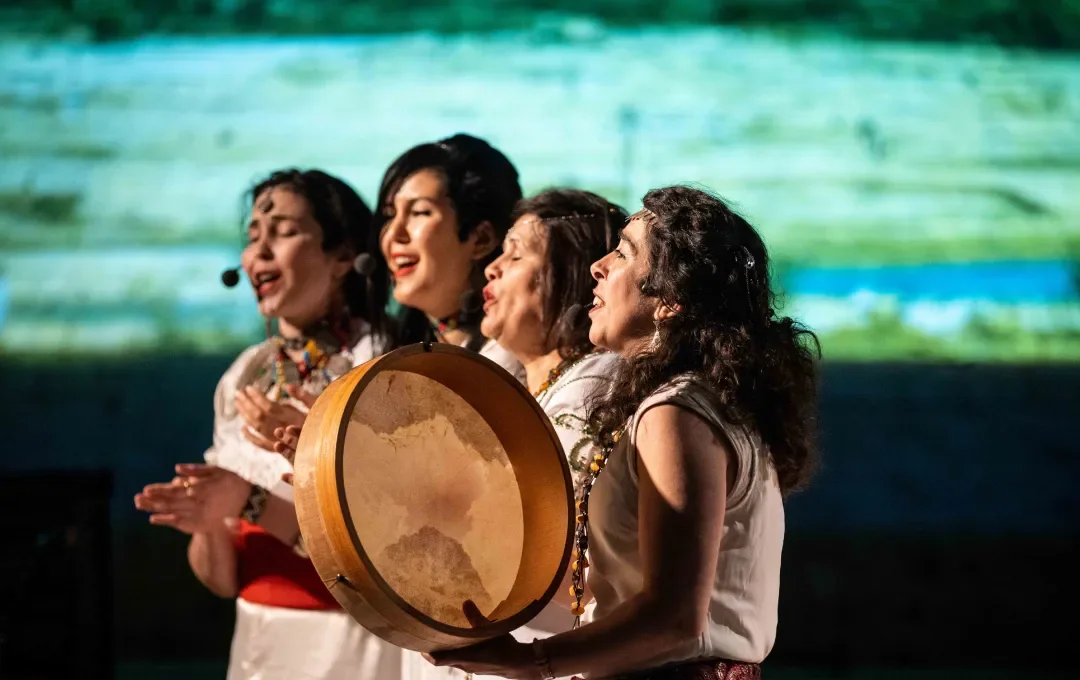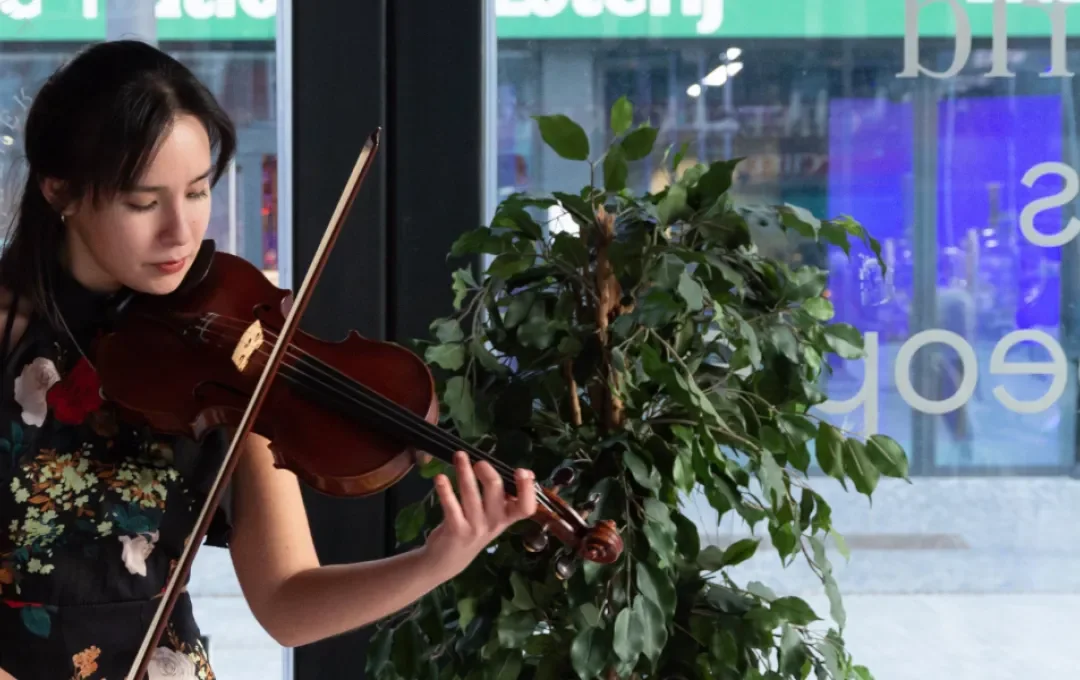
Listening to music together creates a bond
interview with Naïl Sumbul and Ine Defieuw
On a sunny day at the end of September, communication officer Aurélie Walschaert have arranged to meet Ine Defieuw, a member of staff at De Buurtwinkel vzw, and Naïl Sumbul, a musician and since 2022 an enthusiastic participant in the project Jouw Sleutel [Your Key]. When she is still some distance away, she can already hear the soft tones of a flute, and when she steps onto Anneessensplein, she sees Naïl sitting on a bench. He is early for the meeting, and so is treating passers-by to what he describes as “mystical Turkish melodies” on his ney [a reed flute from the Arab world]. Eager to hear about the importance of culture in their life and work, Aurélie starts her conversation with Naïl and Ine.
Ine, can you briefly describe who De Buurtwinkel is there for, and what exactly it is you do?
Ine Defieuw: De Buurtwinkel is a community centre in the Anneessens neighbourhood. One of our missions is to improve the coexistence of the different groups in the neighbourhood and strengthen mutual solidarity. Alongside that, we are there for people living in poverty. We try to improve living conditions for them, and also work hard to achieve better conditions through policy. But our audience is not limited to the people that live in the Anneessens neighbourhood. People come from all over Brussels to our welcome moments, a kind of chat café, on Tuesday and Thursday mornings. So we are also a meeting place, and often see the same people coming back, even if they have since moved to a different neighbourhood. For example I know Naïl from these moments, and from his participation in our events.
What role does culture play in your operations?
Ine: We do not organise cultural events ourselves, but we do organise monthly outings to museums, a city, a film, and so on. Our visitors can take part free of charge or for a small fee. We notice that it does people so much good to escape from their daily cares for a while and discover new things. In addition, in terms of culture I also think about the diversity of our visitors. By participating in something together, and talking about that experience, time and time again you learn something about one another’s cultural customs.
Naïl, music plays a big role in your life. What makes it so important to you?
Naïl Sumbul: Music adds flavour to my life. And I think that it also adds flavour to the lives of others, above all those who are in despair or in survival mode. And if you enjoy something, for example a concert, it inspires you to get to work yourself. Thus you pass on an inner beauty that you cannot transmit in any other way. This inner beauty is inside every one of us, if we only cultivate it. Making music, drawing, painting, etc. can help you to express yourself, to regain your confidence and be valued by others, or to emerge from your isolation. In addition, music that you find beautiful can transport you somewhere else, for example to a country that you find beautiful, and this allows you to take a distance from day-to-day worries.
Not only do you play music yourself, but you also enjoy attending concerts. Is there something that stops you from going to concerts regularly?
Naïl: As you have to pay to attend concerts, they are too expensive. But my biggest problem is staying informed about free events. If someone tells me about a concert, I pick up the phone and ask if I can come along. And sometimes the answer is positive. But you have to be daring, and that’s only possible if you’re in good shape and if someone else signposts you. You have to give people the opportunity to discover and to taste, without making them feel guilty. I see many people who don’t get hold of that information, not even about free cultural activities. Sometimes they are not aware because they are forgotten. Perhaps cultural workers think that they have lost their taste for life. But you can only taste something if you try it, or by accepting that you will try it. So the role of cultural guides is also extremely important. And all of that takes time, you have to take it step by step. In Turkey we say: you fill a lake drop by drop.
Ine: As Naïl describes, it is of course extremely important to talk to one another. By building up a relationship of trust, you can get people over the threshold. And alongside that, the financial picture and the language barrier also play a role. It is not straightforward for everyone to understand information from a brochure or flyer, even if they speak a little Dutch or French.
So does a project like Jouw Sleutel [Your Key] help to overcome some of those barriers?
Naïl: With the project Jouw Sleutel [Your Key], Klarafestival gets in amongst people. You talk to them, straightforwardly, and with a smile. These are the human aspects that are so important. First and foremost, you have to come close to people, and only then do the practical things follow.
Ine: I agree with that. Although it also helps if the organisational aspects have been taken care of. Our visitors often have many everyday worries and stresses, and in consequence have no headspace for other things.
How important is it to be able to experience music together with other people?
Naïl: Music is not only for specialists, and attending a concert goes beyond simply listening. I think that it is important to be able to talk to one another about music, above all in today’s individualistic and capitalist society. By asking someone what they thought of the concert, you allow them to express their feelings. Listing to music together creates a bond.
Ine: We notice that we reach many single people with our operations, and for them it is especially important that they can go on an outing with others. When there is someone with them that they know well, it also gives them the confidence to discover something new.
In 2022 you took part in various Jouw Sleutel [Your Key] moments during Klarafestival and the Walden Festival. What did you find the most memorable?
Ine: For us it was brilliant that all the practical matters had already been sorted out and we could simply sign up for certain concerts. What really stayed with me was the welcome moment that preceded the actual concert, at which drinks and snacks were served and there was an explanation of the unwritten rules during a concert, and of the music. That had a very reassuring effect on those who felt that they were on unfamiliar turf.
Naïl: During the Walden Festival last summer, you invited the Algerian composer Salim Dada. He has composed fantastic things, in the idiom of his country and culture. It was presented in a very straightforward way, without minimising folk music and without passing judgement on it. I found that incredibly important and beautiful. And what’s more, during the whole festival there was a very relaxed atmosphere, I felt totally at ease.
interview by Aurélie Walschaert, image © Patrick Van Vlerken
